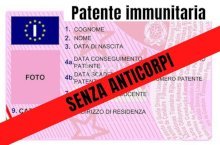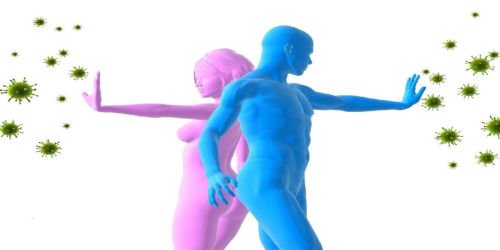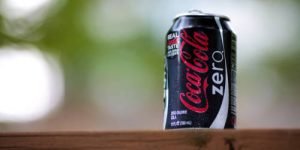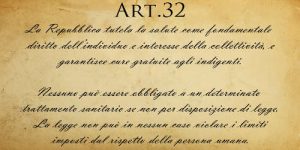The question of whether contracting Coronavirus gives immunity or not has been a subject of interest since the beginning of the pandemic but experts have not yet come to an unambiguous and convincing conclusion. Why?
Let us try to make a simple and straightforward argument together since any topic, even the most complicated, can be explained in a way that is understandable to everyone if those who expound it are clear about it. When, on the other hand, the explanations are confusing, it means that one is groping in the dark, and that is what scientists often seem to be doing when they give interviews every day stating everything and then the opposite for months.
Coronavirus does not give immunity
Initially, and until recently, it was said that those who get sick with Covid_19 do not develop antibodies; to support this claim they relied on the fact that, some individuals who got cured (cured means having passed the acute phase and eventually developed antibodies) then got sick again. This would mean that, contracting the virus, does not give immunity that is, it leaves the immune system lacking useful antibodies to protect against a new infection. According to this expert theory, even after contracting the virus and being cured, the individual would still remain vulnerable and exposed to contracting the same virus again.
If this were true (but they have yet to agree) even the vaccine would be useless; indeed, it would not explain how they could formulate a vaccine with antibodies to counteract a virus that gives no immunity.
All cured patients develop antibodies
After more than two months, in which the previous version was repeatedly reiterated, both by studies from China and Korea and by reports of cured patients testing positive again after the end of the quarantine...
version has been changed and it has begun to be read from multiple sources that the cured patients develop antibodies.
And immediately there is talk of vaccine.
Only three days after this news came out in the newspapers, and greeted with optimism, we learn that Bill Gates on Saturday, May 2, spoke at length with Premier Conte about the very coronavirus vaccine (http://wellnessere.com/bill-gates-chiama-conte-per-il-vaccino-contro-il-covid_19/) and that Italy lends itself to funding the research of the same with as much as 130 million euros!
Doesn't it seem strange that, just before communicating Italy's commitment on the vaccine front, Italian newspapers broke news that was totally different and totally contrary to previous reports?
For all we quote this article that appeared in Repubblica on April 30, 2020 https://www.repubblica.it/salute/medicina-e-ricerca/2020/04/30/news/adesso_e_provato_tutti_sviluppano_gli_anticorpi_al_virus-255257217/ in which it says precisely that "The news comes via Twitter by Roberto Burioni, complete with a table confirming: those cured of Covid-19 develop antibodies. " patients cured of Covid-19 produce antibodies to the virus. This is good because it makes serologic diagnosis reliable, and if the antibodies were protective, it bodes well for immunity." And he links the Chinese study on Nature Medicine, which confirms: at 19 days after symptoms, 100 percent of the patients tested (285) had developed IgG against Sars-CoV-2."
Immediately from Atlanta comments Guido Silvestri, who leads one of the most advanced research laboratories in Microbiology and Immunology, saying the news is "megapill of optimism," the best news since the pandemic broke out. Because the Chinese study confirms that "our immune system mounts an antibody response against the virus, a response that in all likelihood, based on the precedents of Sars-1 and Mers as well as animal models of coronavirus infection, protects against reinfection or at least the return of the disease. We cannot know how long this response lasts but precedents with similar viruses suggest that it should last at least 12-24 months."
Then can one become "immune" to the virus or not?
Can one become immune to Covid-19? That is the question that becomes more important to answer every day, in order to understand when and how we can start living a more regular and social life again, whether we can achieve herd immunity over time, and also whether we will ever get a vaccine.

This is one of the questions not yet clarified but the most important one to understand. It is still uncertain whether, after contracting the disease, a protective immunity induced by antibodies that would neutralize the virus remains, in case the immune system faces it again, and, what dose of antibodies is needed, for this to happen.
All the data collected so far, and comparisons with a close relative virus, Sars1 (responsible for the 2003 coronavirus outbreak, similar to the 2014 Mers virus outbreak in Arab countries) suggest that, at least for a few months, if not years, those who recover permanently are not likely to become infected again.
In a short time, experts went from saying that, based on the studies done, it did not seem to be possible to speak of "immunity" to saying the exact opposite, albeit with time reservations.
The truth, at the moment, is that there is no sure and unequivocal answer, and this is confirmed by one of the world's most experienced epidemiologists, Professor Marc Lipsitch of Harvard University, who summarized in an article in the New York Times
https://www.nytimes.com/2020/04/13/opinion/coronavirus-immunity.html
his interesting thoughts on the matter; among the many possible hypotheses, one of those being taken most seriously is that, once cured of this virus, one can hope for one or two years of immunity, confirming the thesis of other experts.
If immunity were only temporary, would the vaccine be needed or not?
If the claim of immunity for a limited period of time (e.g., one year) proved to be true, those who want to argue the usefulness of vaccination would probably recommend even repeating it every year to have coverage over time.
Too bad that these are all hypotheses, and everything that has been hypothesized in theory and in the laboratory so far has run up against the reality of the facts, which has proven elusive and unpredictable, especially not very verifiable with reliable cross-references.
There are also documented cases of patients who remain positive very long even after 50 days of quarantine, some with symptoms and undergoing treatment, others asymptomatic; this circumstance also raises many questions about the body's ability to immunize itself to the virus but we will devote a separate article to the topic.
Moreover, no one has yet shown how the immune system will react to the vaccine and whether it will do so with antibodies as good as those it can produce naturally, or whether it is likely to trigger paradoxical induced reactions (hyperimmune or autoimmune) as much scientific literature shows.
For now, the road to the vaccine, beyond political proclamations, is still uphill as researchers will have to prove not only that the vaccine is able to activate an immune response in the body but also that the immunity will persist over time (and this will be very difficult to prove in the short term for obvious reasons).
So, in conclusion, to seriously answer the initial question, one can only say that too little time has passed in order to determine whether immunity develops once recovered from Covid-19 and for how long.
It must also be said that anyone who wants to shut the mouths of so-called "non-experts" perhaps forgets that even virologists by trade can hardly be experts in the face of an unknown virus, which they themselves have described as totally "new" and with unpredictable and very changeable effects.
Despite this prevailing uncertainty, fortunately, after nearly two months of trial and error, Italian doctors are saving many critically ill patients thanks to the use of heparin and especially thanks to the plasma rich in antibodies (Dr. Giuseppe De Donno of Mantua) .
Clarifying as soon as possible the rebus of whether or not the coronavirus has immunity is even more important since we have already been entering the so-called Phase 2 for days and we all hope that we will not have to see an increase in infections and, at the same time, be able to resume our life habits suspended during weeks of lockdown.
Recommended readings for understanding the immune system:
 | What it looks like and how it works in health and disease
€ 39,90 |
 |
€ 9,90 |





